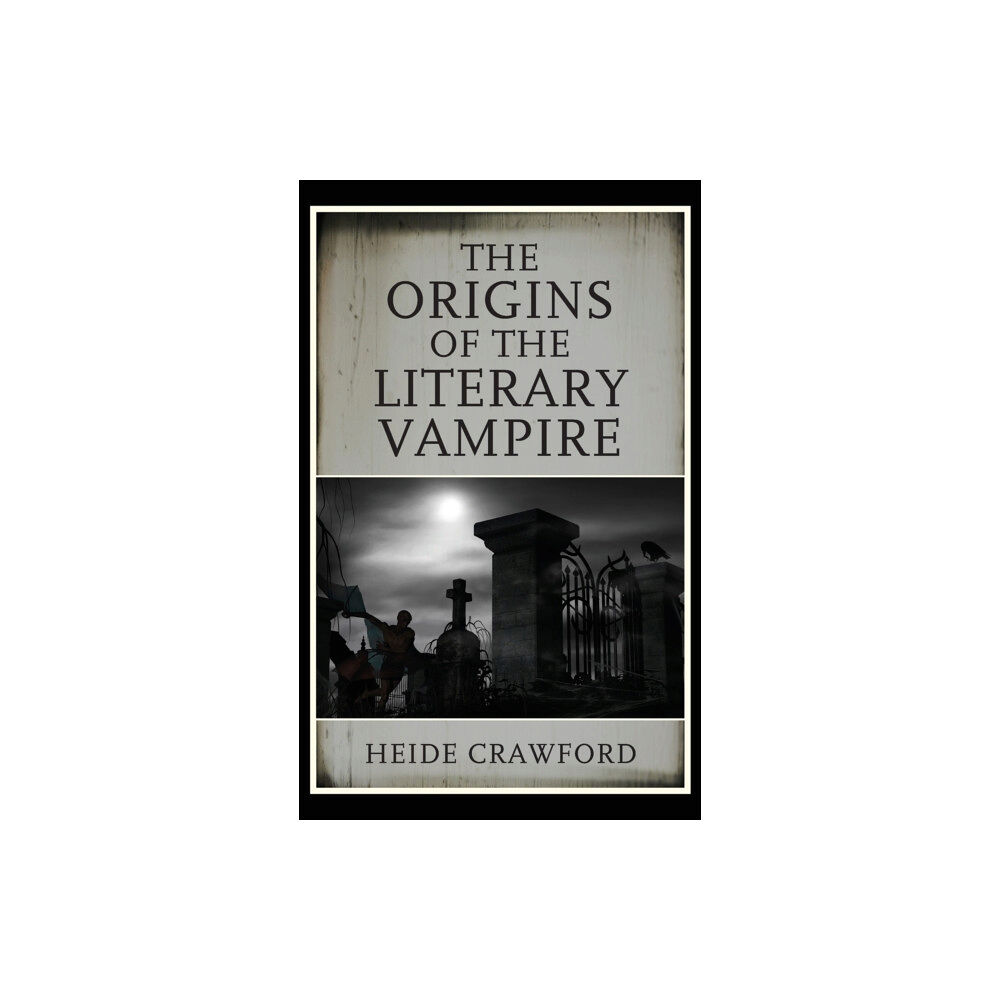- Hem
- Böcker
- Kurslitteratur
- Litteraturvetenskap & Språklära
- The Origins of the Literary Vampire (inbunden, eng)

The Origins of the Literary Vampire (inbunden, eng)
The long and distinguished tradition of the literary vampire began in Germany during the Age of Enlightenment. German literature was the fir...
1 069 kr
1 115 kr
Slut i lager
- Fri frakt
Fri frakt över 299:-
Snabb leverans
Alltid låga priser
Produktbeskrivning
The long and distinguished tradition of the literary vampire began in Germany during the Age of Enlightenment. German literature was the first to adapt the vampire figure from central European folklore and superstition and give it literary form. Despite these German origins, scholarly attention devoted to literary vampires has consistently focused on a select set of sources: British and French literature, Bram Stoker’s Dracula, and the phenomenon of the vampire superstition in general.
While there have been many illuminating studies of pre-literary vampires and vampires that have already been firmly established as literary figures, the story of the crucial moment of transition from folkloric figure to literary subject has not yet been told. In The Origins of the Literary Vampire Heide Crawford redirects scholarly attention to the body of German poetry and prose where vampire folklore becomes vampire literature.
This book focuses on the adaptation of the vampire superstition from central European folklore by German poets in the 18th and early 19th centuries for an audience that had become increasingly interested in superstition and occult phenomena in an Age of Enlightenment. In addition to establishing that the origins of the literary vampire in 18th and 19th century German poetry and prose were informed by the stories and reports of vampires from Central Europe, Crawford argues that the German poets who adapted this figure from superstition for their creative work immediately molded it into a metaphor for contemporary cultural anxieties and fears—a connection that would inspire horror literature in general and the traits of the literary vampire in particular for the 19th century and beyond.
Contemporary culture has exhibited a marked fascination with eroticized and politicized applications of the vampire. This volume traces these erotic motifs, common political motifs and others to the first vampire poems that were written by German poets. Consequently, this book answers three central questions: What were the origins of the literary vampire; how was the vampire of folklore and superstition adapted for literature; and how did German poets contribute to the development of the vampire and Gothic horror literature? By answering these and other questions, The Origins of the Literary Vampire explains how the literary vampire became the ubiquitous horror figure it is today.
While there have been many illuminating studies of pre-literary vampires and vampires that have already been firmly established as literary figures, the story of the crucial moment of transition from folkloric figure to literary subject has not yet been told. In The Origins of the Literary Vampire Heide Crawford redirects scholarly attention to the body of German poetry and prose where vampire folklore becomes vampire literature.
This book focuses on the adaptation of the vampire superstition from central European folklore by German poets in the 18th and early 19th centuries for an audience that had become increasingly interested in superstition and occult phenomena in an Age of Enlightenment. In addition to establishing that the origins of the literary vampire in 18th and 19th century German poetry and prose were informed by the stories and reports of vampires from Central Europe, Crawford argues that the German poets who adapted this figure from superstition for their creative work immediately molded it into a metaphor for contemporary cultural anxieties and fears—a connection that would inspire horror literature in general and the traits of the literary vampire in particular for the 19th century and beyond.
Contemporary culture has exhibited a marked fascination with eroticized and politicized applications of the vampire. This volume traces these erotic motifs, common political motifs and others to the first vampire poems that were written by German poets. Consequently, this book answers three central questions: What were the origins of the literary vampire; how was the vampire of folklore and superstition adapted for literature; and how did German poets contribute to the development of the vampire and Gothic horror literature? By answering these and other questions, The Origins of the Literary Vampire explains how the literary vampire became the ubiquitous horror figure it is today.
| Format | Inbunden |
| Omfång | 148 sidor |
| Språk | Engelska |
| Förlag | Rowman & Littlefield |
| Utgivningsdatum | 2016-08-30 |
| ISBN | 9781442266742 |
Specifikation
Böcker
- Inbunden, 148, Engelska, Rowman & littlefield, 2016-08-30, 9781442266742
Leverans
Vi erbjuder flera smidiga leveransalternativ beroende på ditt postnummer, såsom Budbee Box, Early Bird, Instabox och DB Schenker. Vid köp över 299 kr är leveransen kostnadsfri, annars tillkommer en fraktavgift från 29 kr. Välj det alternativ som passar dig bäst för en bekväm leverans.
Betalning
Du kan betala tryggt och enkelt via Avarda med flera alternativ: Swish för snabb betalning, kortbetalning med VISA eller MasterCard, faktura med 30 dagars betalningstid, eller konto för flexibel delbetalning.
Specifikation
Böcker
- Format Inbunden
- Antal sidor 148
- Språk Engelska
- Förlag Rowman & littlefield
- Utgivningsdatum 2016-08-30
- ISBN 9781442266742
